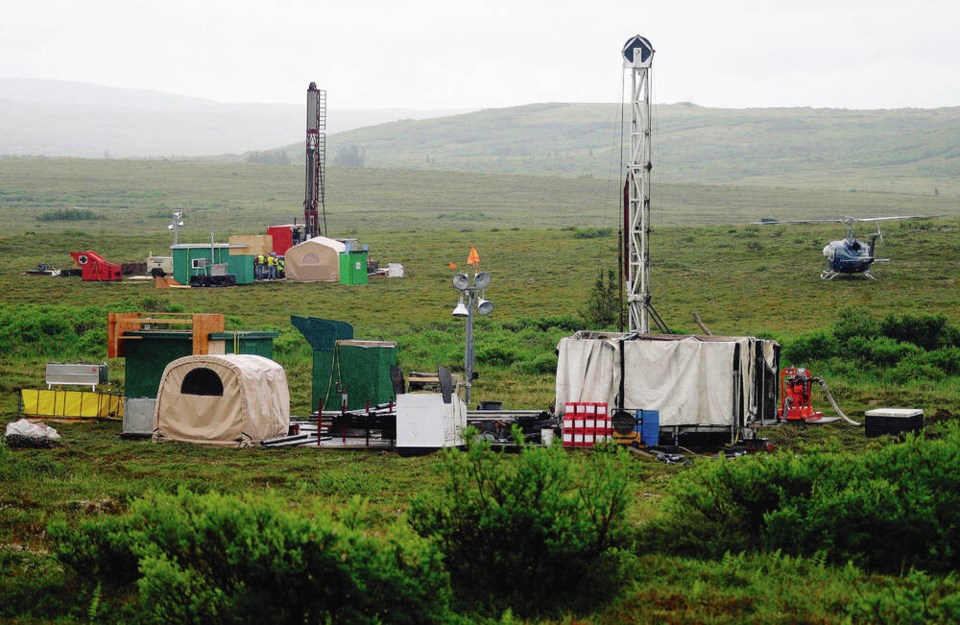JUNEAU, Alaska — The U.S. Environmental Protection Agency took an unusually strong step Tuesday and blocked a proposed mine heralded by backers as the most significant undeveloped copper and gold resource in the world because of concerns about its environmental impact on a rich Alaska aquatic ecosystem that supports the world’s largest sockeye salmon fishery.
The move, cheered by Alaska Native tribes and environmentalists and condemned by some state officials and mining interests, deals a heavy blow to the proposed Pebble Mine. The intended site is in a remote area of southwest Alaska’s Bristol Bay region, about 320 kilometres southwest of Anchorage.
It’s accessible only by helicopter and snowmobile in winter, developer Pebble Limited Partnership said in a permit application with the U.S. Army Corps of Engineers. As proposed, it called for a mining rate of up to 73 million tons a year.
An appeal by the Pebble partnership of a separate rejection of a key federal permit is unresolved.
In a statement, Pebble Limited Partnership CEO John Shively called the EPA’s action “unlawful” and political and said litigation was likely. Shively has cast the project as key to the Biden administration’s push to reach green energy goals and make the U.S. less dependent on foreign nations for such minerals.
The Pebble Limited Partnership is owned by Canada-based Northern Dynasty Minerals Ltd.
The Pebble deposit is near the headwaters of the Bristol Bay watershed, which supports a bounty of salmon “unrivaled anywhere in North America,” according to the EPA.
Tuesday’s announcement marks only the 14th time in the roughly 50-year history of the federal Clean Water Act that the EPA has flexed its powers to bar or restrict activities over their potential impact on waters, including fisheries. EPA administrator Michael Regan said his agency’s use of its so-called veto authority in this case “underscores the true irreplaceable and invaluable natural wonder that is Bristol Bay.”
The veto is a victory for the environment, economy and tribes of Alaska’s Bristol Bay region, which have fought the proposal for more than a decade, said Joel Reynolds, western director and senior attorney with the Natural Resources Defense Council.
The mine would have jeopardized the region’s salmon fishery, which brings 15,000 jobs to the area and supplies about half the world’s sockeye salmon, Reynolds said. The 2022 harvest was more than 60 million fish, state officials reported last year.



